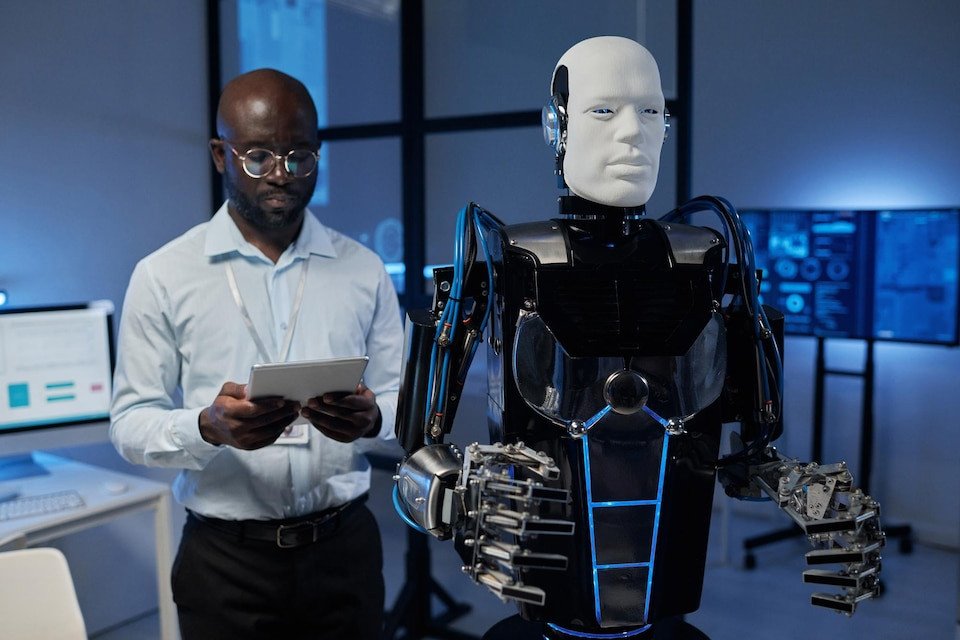The Unsung Heroes of AI: Systems Engineers and Their Impact

Artificial Intelligence (AI) has been making significant strides in recent years, revolutionizing various industries and aspects of our lives. Behind the scenes of these AI breakthroughs are the unsung heroes known as systems engineers. These skilled professionals play a crucial role in designing, building, and maintaining the infrastructure that powers AI systems. In this blog, we will explore who a systems engineer is and delve into their profound impact on the world of artificial intelligence.
Who is a Systems Engineer?
A systems engineer is a multidisciplinary professional responsible for designing and managing complex systems, ensuring that all components work harmoniously to achieve a specific goal or set of goals. These professionals possess a diverse skill set that includes knowledge of hardware, software, networks, and various engineering principles.
Key Roles of Systems Engineers in AI
-
Infrastructure Design and Optimization: Systems engineers are instrumental in designing the hardware and software infrastructure necessary to support AI applications. They assess the computational and storage requirements of AI models and algorithms, ensuring that the system can handle the workload efficiently. Moreover, they optimize existing systems to maximize AI performance, often leveraging technologies like GPUs and TPUs for accelerated processing.
-
Scalability and Flexibility: AI systems often require the ability to scale rapidly as data volumes and model complexities grow. Systems engineers are responsible for creating scalable architectures that can accommodate these evolving demands. They also ensure that the system can adapt to changing AI algorithms and frameworks, allowing organizations to stay competitive in a rapidly evolving field.
-
Data Management and Integration: High-quality data is the lifeblood of AI. Systems engineers work on data storage, retrieval, and integration solutions. They ensure data pipelines are robust, reliable, and capable of handling vast amounts of data, making it accessible for AI model training and inference.
-
Security and Compliance: AI systems deal with sensitive data and have the potential to impact privacy and security. Systems engineers play a pivotal role in implementing security measures, such as encryption and access controls, to protect data and comply with regulations like GDPR or HIPAA.
-
Monitoring and Maintenance: AI systems require ongoing monitoring to detect issues, bottlenecks, and performance degradation. Systems engineers design monitoring systems and implement automated maintenance routines to keep AI applications running smoothly.
Impact on AI
The work of systems engineers is intertwined with the advancement of AI in various ways:
-
Faster Model Training: Through hardware optimization and efficient infrastructure design, systems engineers enable faster model training, reducing the time it takes to develop and iterate AI models.
-
Improved Accuracy: Systems engineers ensure that AI systems have access to high-quality data and can process it efficiently, leading to improved accuracy and reliability of AI predictions and classifications.
-
Scalability: The ability to scale AI systems horizontally and vertically is crucial for handling increasing workloads. Systems engineers make this scalability possible, enabling AI to tackle more complex problems and process more data.
-
Real-time AI: Systems engineers design systems capable of real-time AI inference, which is essential for applications like autonomous vehicles, robotics, and fraud detection.
-
Cost Efficiency: By optimizing infrastructure, systems engineers help organizations achieve cost efficiencies, making AI more accessible and economically viable for a wider range of businesses and applications.
Conclusion
Systems engineers are the unsung heroes of the AI revolution, shaping the foundation upon which artificial intelligence stands. Their expertise in infrastructure design, scalability, security, and data management plays a pivotal role in the development and deployment of AI systems. As AI continues to transform industries and society, the contributions of systems engineers will remain indispensable, ensuring that AI operates effectively and ethically, and its potential is fully realized.




